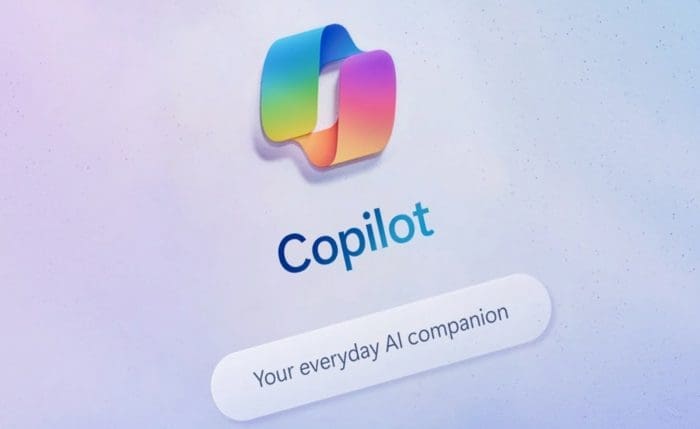
Microsoft Copilot: IT Managed Services & AI Integration for Businesses
Revolutionize your service desk! Microsoft Copilot offers IT managed services & AI integration. Enhance your business with AI-powered service & expert IT management.
Your London Telecoms and IT partner

This company phone service system is a broadly accepted modern-day means to make phone calls, particularly for small to medium services wishing to interact much more effectively.
If you’re exploring the options of making phone calls without a physical landline, this blog post will provide you with information about what VoIP is, how it functions, and how you can discover the best VoIP service provider.
Foster seamless communication and collaboration across your entire organization. Our unified platform empowers remote and in-office teams to work together more effectively, driving innovation and project success.
Remember the days of clunky landline phones chained to the wall/desk? In our internet-powered age, a new breed of calling system has emerged: VoIP, or Voice over Internet Protocol. But with so many options, choosing the right phone system can feel like deciphering cryptograms. So, lets resolve the confusion and let’s break down the difference between landlines and VoIP in plain English.
VoIP is an interactions modern technology that allows you to make phone calls using your broadband link rather than landline service. VoIP means Voice over Net Method, which is an open standard for developing calls via the Internet. Some might also describe VoIP as Voice over IP. A normal arrangement entails a router for the internet with a mobile phone attached. The handset or service phone system utilizes the web to transfer your speech like a physical landline would. The only difference is that the underlying technology isn’t a landline but the Web.
Phone service providers utilize VoIP to power their telephone services for customers rather than having them mount and maintain physical phone lines and equipment. VoIP assists make and get high-quality phone calls and provides advanced features not normally readily available on landline solution.
VoIP converts your voice into a digital style, compresses it, and sends it over the internet. The VoIP company (like your access provider) sets up the call.
For a telephone call, the discussion is traded making use of small information packages. The net can send out these information packages around the globe in less than a second. For internet telephone, these packages travel between your phone and a VoIP supplier.
Voice over Internet Protocol bypasses the phone company completely. Wherever you have a broadband net connection like DSL, cable, or fiber, you can use VoIP. It’s a major upgrade from an analog phone system.
Some basic actions involved are:
Around twenty years ago, you would have required expensive, exclusive tools to make use of VoIP. Today, VoIP is built on open standards such as Session Initiation Protocol (SIP). SIP gives total inter-operability between desk phones, meeting phones, and VoIP apps.
Think of a landline like a trusty walkie-talkie. Your phone is directly connected to a network of physical wires, those familiar lines stretching across rooftops. When you call, your voice travels through these wires, like a secret message relayed by walkie-talkies, until it reaches your friend’s landline at the other end. Landlines are reliable, familiar, and work just about anywhere with wires. But just like walkie-talkies, they’re limited to their range and lack the fancy features of modern gadgets.
Now, imagine ditching the walkie-talkies and using a cool smartphone app to chat. That’s VoIP in a nutshell. Instead of wires, you use your internet connection (Wi-Fi or mobile data) to make calls. Your voice gets chopped up into tiny data packets, like digital confetti, and zips through the internet like magic. On the other side, your friend’s app catches these packets, reassembles them, and voila! You’re having a crystal-clear conversation, miles apart. But VoIP isn’t just about distance. You can video call, share files, and even hold conferences, all with the click of a button.
VoIP modern technology enables high-quality voice calls over the Internet, whereas landline phones rely on a copper wired telephone network to make outgoing phone calls and get inbound telephone calls. For VoIP technology, since it uses the cloud, a business can avoid on-site installment or administration. When you require to add or manage individuals, it’s a software program modification instead of the need to call an engineer. There’s no single champion in this battle, as both landlines and VoIP have their strengths. Landlines are the gold standard for reliability and simplicity, especially in areas with spotty internet. VoIP, on the other hand, is the tech-savvy social butterfly, offering flexibility, features, and the freedom to call from anywhere with an internet connection.
Ultimately, the best choice depends on your needs and lifestyle. If you’re a homebody who values crystal-clear calls and doesn’t mind being tethered to wires, a landline might be your perfect match. But if you’re a globetrotting digital nomad who craves features and flexibility, then VoIP might just be your voice-calling soulmate.
Organizations prefer VoIP because of its much better calling conventional and larger range of attributes without the need for establishing a pricey on-premises private branch exchange (PBX).
Take into consideration changing from traditional phones to VoIP if:
For a small to medium configuration, you just need a subscription with your company VoIP provider and a tool to make calls to get set up for the very first time. This device could be a desk phone, a softphone on your laptop, or a VoIP application on your cellphone.
Presuming you currently have a broadband link and a router; you don’t need any other VoIP tools. If you take care of VoIP for your business, you might opt to use a different firewall software or switch from your router. If you have analog phones or other devices that you wish to retain, make use of an analog telephone adapter (ATA). These tiny adapters link your VoIP solution to standard telephone services and tools, such as old fax machines and alarm.
VoIP desk phones aren’t pricey; you can even get them free from your phone company provider. And also, they commonly consist of a mobile application you can use on your desktop or mobile device to make telephone calls instead of making use of a typical phone.
The only real disadvantage of using VoIP rather than a conventional phone system is that you rely on your web link for call high quality. Ensure to investigate your internet connection prior to you move to VoIP.
If you have a high-speed broadband connection, you should be great. However, it’s always better to check before you make a decision.
The best method to check your network speed and stability is to do a VoIP quality test. It’s a reliable method of examining your network’s capacity and anticipated call quality. It checks for prospective concerns with:
Any one of these could affect voice quality, so it’s best to check and fix your network early in the VoIP setup process.
When you consider the advantages and disadvantages, VoIP is the clear choice for businesses, especially in cities like London. As long as your net connection is stable, you can assure yourself of financial savings.
Below are one of the most preferred VoIP features that will benefit companies:
A Virtual Attendant allows you to configure the alternatives customers listen to when they call your service. For instance:
You can choose to course calls to particular divisions or people best suited for a certain kind of query. Because you can configure all VoIP elements through an internet browser, you can alter them as often as you like, and frequent IT technician site visits can be avoided.
Mobile and desktop computer apps allow you to use your VoIP phone service without a VoIP mobile phone.
VoIP apps are perfect for salespeople and service technicians who work on the go, as well as remote employees that sit at conveniently located coffeehouses and co-working spaces. These apps make sure every person in your firm is reachable, no matter where they are.
Some VoIP systems may need additional headsets or specific devices. When rolling out VoIP, check that needs a physical handset to see if you can conserve money upfront.
Thanks to codecs created for top quality, every VoIP telephone call over a secure net connection benefits from HD call high quality. You have crystal-clear conversations with associates and clients. At the same time, you’re seen as a reputable company that concentrates on offering quality consumer communication experience.
Unified Communications as a Service (UCaaS) integrates different communication approaches, such as instant messaging, calls, and video clip conferencing, into a single platform. With functions like telephone call recording, reporting, and voicemail, Unified Communications is the next step up from VoIP.
Switching to VoIP opens doors to improving your interior partnership. If you intend on making video calls rather than normal phone calls in the future or like the idea of instant messages, VOIP is a great initial step.
The internet is prone to safety and security imperfections. Any kind of call made over the internet requires to be protected. Utilizing VoIP ensures that everything is secured en route. No person has accessibility to your discussions, only the metadata.
For instance, you call a colleague in your workplace in Arizona. Call logs show the timestamp and period of the call, yet the content isn’t noticeable.
VoIP goes a step ahead and allows you to record calls in case you wish to keep a track of your business for quality trainings or administrative purposes. It provides basic call recording alternatives, where telephone calls are saved in a cloud-based website, all set for downloading later.
You can also choose sophisticated telephone call recording, including features like belief analysis to flag dissatisfied consumers or develop upselling opportunities.
If the business scale is that just requires to convert your company phones to VoIP without any unique capabilities, you need somebody specializing in small business VoIP.
Pick a provider that ticks the ideal boxes, including:
Likewise, if you manage a contact centre with facility, your VoIP supplier needs to provide the whole telecommunications plan. While you can decouple a VoIP phone system and a contact centre, users enjoy the single pane of glass experience. This is reflected in the G2 customer positions, where real individuals vote on which solutions they favor.
As an example, Portman Technology Solutions Limited won the very best Software Program Honor in the annual G2 user rankings for its commitment to improved cooperation and performance. Our focus is on UCaaS, which helps call facilities and business unify various interactions devices on one system, Do consider all such factors when choosing a connected interactions supplier.
In the 1970s, scientists started discovering utilizing web protocols to attach phone systems. This is back when dialing into a bulletin board system (BBS) to trade messages was common.
At the time, long-distance phone calls were expensive. This at some point led to advancements in real-time digital voice networks. This allowed real-time voice discussions over very early information networks. In the 1990s, the first commercial VoIP applications emerged, allowing voice calls to be made directly from computers.
VoIP modern technology continued to advance in the 1990s and 2000s. Vital advancements consisted of video conferencing abilities and more standardization of exactly how VoIP systems take care of telephone calls.
Today, VoIP has actually quite easily replaced analog phone lines. The technology enables voice calls to be sent electronically online instead of standard phone lines. The all-time benefits of VoIP include lower prices, added functions, and higher flexibility compared to the orthodox landline systems. VoIP has actually ended up being an essential part of modern-day service phone and interaction systems.
Tired of switching between email, phone, chat, and video conferencing? Our unified communication solutions streamline everything into one platform, eliminating confusion and boosting team collaboration.
As you can picture, voice over IP entails several methods and standards that are made use of to guarantee telephone call are completed efficiently and heard in crystal-clear call quality.
VoIP stands for Voice over Internet Protocol, which allows you to make phone calls using your broadband connection instead of a landline. It converts your voice into digital data, compresses it, and sends it over the internet in small data packets. The call is set up by the VoIP provider, and your VoIP phone converts the digital signals into audio.
Advantages:
Disadvantages:
When selecting a VoIP provider, consider:
ABOUT THE AUTHOR

Vikas Shah joined Portman Tech as Chief Technology Officer in 2018. IT has always been his passion and he has built his career around technology. Vikas closely follows developments in technology, providing clients with solutions that fit their requirements.

Revolutionize your service desk! Microsoft Copilot offers IT managed services & AI integration. Enhance your business with AI-powered service & expert IT management.

VPNs for Business: – In today’s business world, it’s essential to protect your company’s data and your employees’ privacy. A VPN can be a valuable tool for achieving this goal.

Boost customer trust, and achieve peak efficiency with The Ultimate Guide to ISO Compliance and Quality Assurance. Demystify complex standards, implement best practices, and gain a competitive edge.

0800 862 0120
hello@portmantech.com
123 Aldersgate Street, London EC1A 4JQ